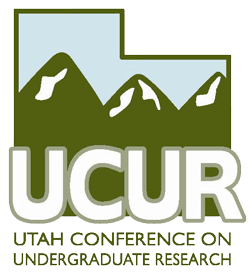Advancement of Petroleum Diesel Alternatives Utilizing a Multifaceted and Interdepartmental Approach
Document Type
Poster
Journal/Book Title/Conference
Presented at Utah Council for Undergraduate Research, February 28, 2014
Publication Date
2-28-2014
Faculty Mentor
Lance Seefeldt
Abstract
The advancement of biologically derived alternatives to petroleum diesel fuel requires a multifaceted approach. At Utah State University we use an interdisciplinary team including the Colleges of Engineering, Agriculture & Applied Sciences, and Science in conjunction with industry partners to drive innovation in improving the science behind petroleum diesel alternatives. With increasing petroleum use, depleting reserves, increasing emissions standards, and other factors, there is need for petroleum diesel alternatives that are cost effective, offer improvement, and perform similarly to petroleum diesel. Our team has focused on the use of oleaginous microbes utilizing low value effluent and waste sources including sugars and CO2 to create biofuels. We have focused on a yeast, Cryptococcus curvatus, and a microalgae, Nannochloropsis salina which have shown high yields of fuel per cell mass. Using these microbes we have utilized USU’s own direct trans-esterification reaction to create sufficient quantities of biodiesel for engine performance and emissions testing, including a subset of ASTM tests characterizing the fuels from each organism. Our initial engine testing used petroleum diesel as a baseline in conjunction with commercial soybean biodiesel to establish the quality of our microbially derived biodiesel. Testing in stationary diesel engines and on the Bonneville Salt Flats has proven our microbial fuels perform similarly to soybean biodiesel and comparably to petroleum diesel. To further improve biological diesel replacements we have begun working to create green diesel, hydrocarbons from a biological source, using a novel method of hydrothermal liquefaction. Preliminary results of those tests are presented here. Through a multifaceted and interdisciplinary approach USU is successfully improving petroleum diesel alternatives from microbial sources including characterization of the properties of these fuels and is working to create the fuels at the scale necessary for exhaustive engine performance and emissions testing including ASTM testing of all important fuel properties.
Recommended Citation
Morgan, Michael, "Advancement of Petroleum Diesel Alternatives Utilizing a Multifaceted and Interdepartmental Approach" (2014). Presented at Utah Council for Undergraduate Research, February 28, 2014. UCUR. Paper 7.
https://digitalcommons.usu.edu/ucur/7


